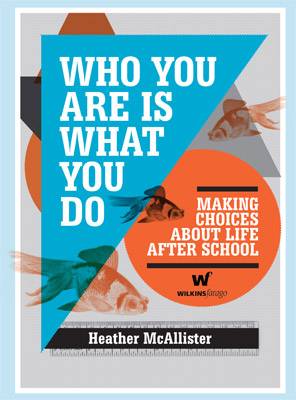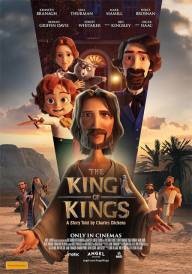Who You Are Is What You Do

Who You Are Is What You Do
For many teenagers making career decisions during the latter years of high school can be a very stressful experience. Some struggle to find a sense of purpose or direction about what job they want to pursue, and often feel pressure from their peers, parents and themselves.
In the new release, Who You Are Is What You Do, author and counsellor Heather McAllister has created a practical and visual workbook designed to help teenagers make career decisions based upon their own unique strengths, interests and values. Heather shows that by aligning these values with potential careers, students are empowered to pursue occupations that will provide them with the personal fulfilment they need to succeed.
A must-read for teenagers looking for career clarity, Who You Are Is What You Do is an essential resource for schools, students and parents alike.
Auckland-based Heather McAllister is a philosophical counsellor specialising in life-direction guidance for teenagers and adults. While she was manager of student recruitment at the University of Auckland, she spent several years counselling and advising students regarding the transition from secondary to tertiary education. She has experience as a career consultant and has also worked in corporate recruitment. As she says in the introduction: "Much of this book is inspired by my discussions with thousands of students about their life goals and dreams." Heather has an MA in Philosophy and is an adjunct member of the American Philosophical Practitioners Association.
Who You Are Is What You Do
Wilkins Farago
Author: Heather McAllister
ISBN: 9780980607024
Price: $29.99
Interview with Heather McAllister
Question: Why do you find many teenagers put a load of stress upon themselves to decide what 'they want to be when they grow up'?
Heather McAllister: I think they stress for several reasons. The first is that there are so many options, this can lead to confusion. Careers are not straightforward choices any more and there are jobs today that didn't exist even a couple of years ago. Secondly, they are often receiving well-meaning but conflicting advice from several sources including friends, family, teachers and so on. Parents don't always understand how broad the options are and that in pressuring their children to go for a 'safe' option, they may be restricting them. Thirdly, they don't always have the ability to analyse their own skills, strengths, values and goals and align them with a possible career path. This can be daunting and so the uncertainty can leave them paralysed with indecision.
Question: How common is it for parents to pressure their child (intentionally or unintentionally) to decide their future career early in their high school life?
Heather McAllister: Schools often require students to make subject choices in the second or third year of high school which puts pressure on the students and the parents, who often are unaware of how career development has changed. Many parents become quite anxious and concerned that the student is going to make the 'wrong' decision. Usually the best option for students is to have the basic core subjects covered and if there are options, choose those that they favour and do well at.
Question: At what age do most young adults decide on a career and then how often does that career change completely?
Heather McAllister: This varies a lot as career development is no longer about making one choice and then following a linear path towards one goal. Career development is a series of decisions over time. It begins with the first qualification they choose to do when they are fresh out of school. If they do a general qualification which includes subjects they like and in which they have achieved success, and which gives them a good range of options, this is a very good foundation. From that first qualification, they will probably specialise further at a higher level, or look for a job that in some way utilises the knowledge and skills they now have. One choice leads to another. In many companies there are opportunities to move sideways and broaden skills and knowledge as well as move up into leadership roles.
Generally speaking, the average number of years in one role is about three to five. Jobs usually go in sectors, so if a person begins in the health sector or education sector, they may remain within those sectors but change roles from time to time depending on opportunities, or they may transfer their skill to another sector entirely. Flexibility and transferable skills are key words in describing career development now. Some professionals may choose to follow a linear path as for instance, a medical practitioner, lawyer or accountant but this is no longer a foregone conclusion.
Question: Career guidance is important in regards to choosing final year subjects, what subjects do you recommend a year 12 student choose to keep their options open, if they are unsure of their career path?
Heather McAllister: It is best to go with the student's strengths and the subjects they most like while keeping the core subjects covered. Often they have a 'leaning' towards the arts or the sciences and there is a clear distinction. However, there are many able students who achieve well in both areas. These days, students have the option of doing double degrees at tertiary level whereby they can have several 'strings to their bow' or two or more majors in a single degree.
I would also advise students not to over-specialise at school. For instance, stick to generalist subjects such as economics or geography rather than narrowing down to courses in tourism or hospitality. That can come later.
Question: Can you explain how the book aids teenagers in making career decisions based upon their own unique strengths, interests and values?
Heather McAllister: Career decision making comes down to self-knowledge and understanding and self-responsibility. School leavers are beginning to ask the 'Who am I?' questions but don't always know how to go about this. The book is an interactive tool which is designed to help students begin to explore who they are with a selection of questions and suggestions that will help kick-start that journey of life-long self-discovery.
Question: What was the purpose behind creating Who You Are Is What You Do as a visual workbook?
Heather McAllister: The workbook developed as a tool when I consulted with students seeking career advice. I began to discover which questions helped them to a deeper understanding of themselves and their future. I also gave them 'homework' at the end of the sessions. The questions and suggestions for the homework were included in the book. It evolved over a period of time.
Question: Is Who You Are Is What You Do also a resource for parents and teachers?
Heather McAllister: Yes, definitely. Many people have commented that they wish they had a guide book such as this when they were young. For parents, it helps them understand the changes in career development since they left school so that they have a better understanding of what their student sons and daughters are facing in terms of decision-making. For teachers, it is a useful reference for students who like to think things through for themselves and want to have a better understanding of what career decision-making is about.
Question: Can you talk about your work as a career consultant became research for Who You Are Is What You Do?
Heather McAllister: As Manager of the Student Recruitment team at the University of Auckland in New Zealand, I travelled and spoke to hundreds of students in Auckland and in many parts of the country. I became more and more interested in career development as I discovered how many students were confused about what to do when they left school. This prompted me to research this area and the more I read, the more I discovered how important self-knowledge and understanding were to the process. It also tied in very well with my Masters thesis which was about authenticity or what it is to be true to yourself. The book is a blend of my experience with the students, the research and practical application of what I had learned and studied.
Interview by Brooke Hunter
MORE





